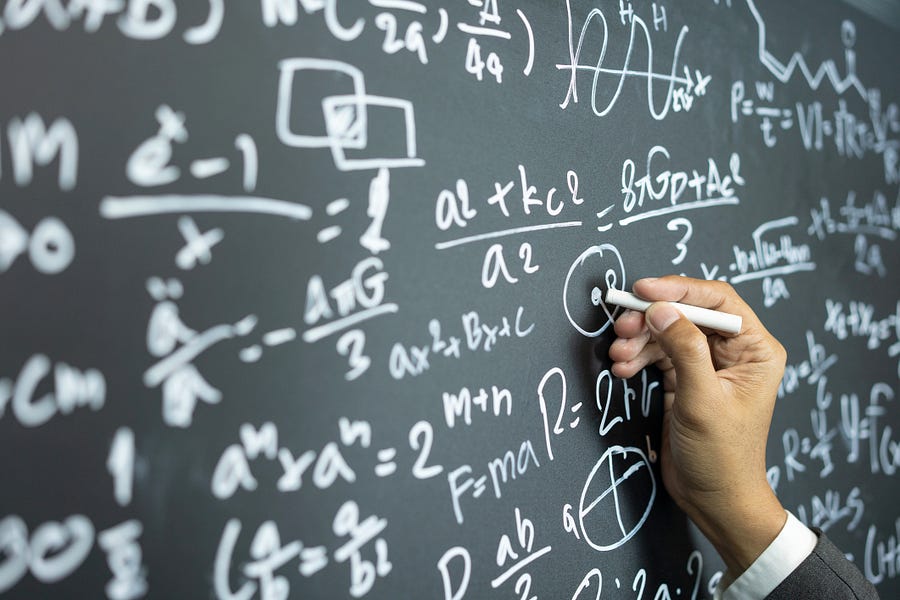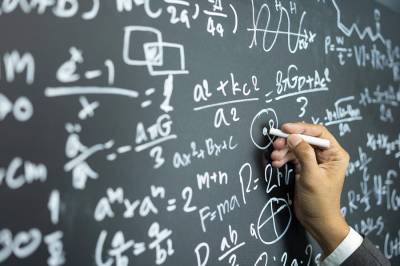Last year, I received a phone call from a friend who was a recent graduate of Carnegie Mellon University. After graduating with a research master’s degree—fully funded by grants from the federal government—and publishing papers in top artificial intelligence (AI) journals, he started working on machine learning technologies for a major defense contractor, delivering on several critical technologies. He isn’t alone; foreign born scientists and engineers comprise more than 50 percent of the defense industrial base. During our conversation, he mentioned that he was not selected as part of the H-1B visa lottery for the third time, and unless he found another way to continue his employment at this firm, he would have to move to another country. This story is all too common. More than half of AI Ph.D.s who leave the country after graduating say they do so because of immigration issues.
The House of Representatives recently passed the America COMPETES Act, which includes a provision exempting holders of advanced STEM degrees from annual green card caps. This exemption would allow them to apply for a green card immediately upon graduation, without affecting other applicants. The conference committee reconciling differences between the America COMPETES Act and its Senate counterpart, the United States Innovation and Competition Act, has a critical opportunity to enact a targeted reform of our green card process and bring it closer to one that meets our national security and economic needs.
I, too, came here almost five years ago to earn my graduate degree in artificial intelligence. The United States offered me academic and research opportunities I could never have had if I had stayed in India for graduate school. There is a huge difference between the kind of work I’m doing here versus the kind of work I saw Ph.D. students doing there. It’s not that people there have any less intellect or talent—it’s that there’s a whole ecosystem here. I have been fortunate to have collaborated with some of the brightest minds from around the world—people who work daily with the sole purpose of expanding our knowledge of the universe. But given that there are so many unknowns, the lack of a clear future in the United States means that even if I get a job, I’d weigh my options.
The United States is trailing behind both allies and adversaries on this front. In 2020, the U.K. rolled out its Global Talent visa, which provides an uncapped fast-track program providing a three- to five-year pathway to residence to the world’s top scientists, researchers and mathematicians, which was then followed by more high skilled immigration reforms in 2021 to “cement U.K.’s position as a world leader in science, research, and innovation.” Canada’s Express Entry program, which it established in 2015, reported in 2020 that it had seen a drastic increase in participation by U.S. residents from 2017 to 2019, and attributed that growth to non-U.S. citizens. Meanwhile, China has put in place more than 200 elaborate talent recruitment programs, such as the Thousand Talents plan, to attract top global scientific talent, while also focusing on bringing back talented students and workers who are living abroad.
The H-1B visa is often the most viable path for foreign graduate students to stay in the United States upon completion of their studies. However, the H-1B is a lottery program, which means that talented students with a master's or Ph.D. degree and high-paying job offers can easily lose out to applicants with more modest entry-level jobs in information technology. And the current system for establishing permanent residency suffers from decades-long backlogs caused by outdated caps set by Congress more than 30 years ago, which keeps promising advanced degree holders waiting for years for a green card and unable to utilize their full potential.
Keeping this talent shouldn’t be a partisan issue. In a recent letter to the members of the Bipartisan Innovation Act Conference Committee, 49 distinguished national security experts—including several secretaries and deputy secretaries of defense, energy, and homeland security—who served under several Republican and Democratic administrations made the case for exempting advanced degree holders in STEM fields from annual green card limits: “This conference committee, as it reconciles differences between America COMPETES (H.R. 4521) and USICA (S. 1260), has a critical opportunity to tackle the self-inflicted drag that immigration bottlenecks impose on American competitiveness.”
The unprecedented era of scientific research in the 20th century was driven in no small part by scientists who fled Nazi Germany and came to the United States. Fleeing Nazi Germany, Albert Einstein immigrated to the United States in 1933 and became a citizen in 1940. Fellow scientists such as Richard Courant, Edward Teller, Eugene Wigner, Hans Bethe, and Enrico Fermi joined him. These individuals revolutionized science, earned Nobel Prizes, and built world-renowned research programs in some of America's most prestigious universities. It is essential that we maintain our status as a hub for foreign scholars, while also creating an environment that encourages more U.S. students to study physical sciences and engineering. History's lesson on immigration is worth heeding.
To ensure our global competitiveness and American leadership in the research and development enterprise, we must make full-throttled efforts towards attracting the best and brightest from around the world.
My friend is now exploring a move to Canada or Japan. Whatever he decides, the defense contractor he worked for will lose his talent, experience, and know-how. If we're turning away machine learning engineers—and best and brightest in other STEM fields—who are helping U.S. defense companies develop the critical technologies our military needs, how are we going to stand a chance against China?
Divyansh Kaushik is a Ph.D. candidate at Carnegie Mellon University studying artificial intelligence. He is also the president of the Carnegie Mellon University Graduate Student Assembly.






Please note that we at The Dispatch hold ourselves, our work, and our commenters to a higher standard than other places on the internet. We welcome comments that foster genuine debate or discussion—including comments critical of us or our work—but responses that include ad hominem attacks on fellow Dispatch members or are intended to stoke fear and anger may be moderated.
With your membership, you only have the ability to comment on The Morning Dispatch articles. Consider upgrading to join the conversation everywhere.